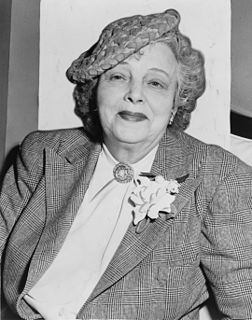Top 8 Quotes & Sayings by Margaret Caroline Anderson
Explore popular quotes and sayings by an American editor Margaret Caroline Anderson.
Last updated on April 18, 2025.
How can anyone be interested in war? - that glorious pursuit of annihilation with its ceremonious bellowings and trumpetings over the mangling of human bones and muscles and organs and eyes, its inconceivable agonies which could have been prevented by a few well-chosen, reasonable words. How, why, did this unnecessary business begin? Why does anyone want to read about it - this redundant human madness which men accept as inevitable?




















